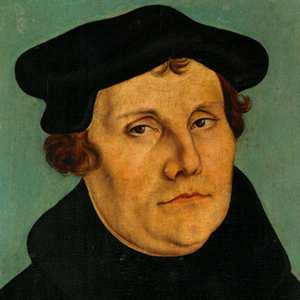 |
Ecclesiology The Study of Church History |
|
"Now that no one is justified by the Law before God is evident; for, "the righteous man shall live by faith." Galatians 3:11
|
|
                   |
On
October 31, 2019, we celebrate the 502nd Anniversary of the Protestant
Reformation. It is fair to ask, “What did the Reformation accomplish?”
Before we commence, it is important to understand the background of the reformers. According to Professor Karin Maag, in an article appearing in Banner on September 1, 2017, These
calls for reform came from insiders, not from folks who were
disgruntled outsiders disengaged from their church. The leading
reformers Martin Luther, Huldrych Zwingli, and John Calvin were all
either priests or priests-in-training in the Roman Catholic Church
prior to their advocacy of Reformation. They did not call for change
because they hated their church but because they cared deeply about it
and wanted it to follow Christ’s teachings faithfully.
Tragically, though the Roman Catholic Church was part of a “self-Reformation” in the 16th Century, the leaders of Catholicism did not take to heart the theological concerns of the Protestant Reformers. They simply doubled down on what they believed, as is outlined in the text of the Council of Trent. So what did the Protestant Reformation accomplish? 1. In the area of Bibliology, the Study of the Bible: Protestantism stated that the ultimate authority in the Church was not the twin strands of the Bible plus the Traditions of the Roman Catholic Church. Rather, the Bible, and the Bible alone is the sole authority. The Bible alone is the basis for what we believe and practice. The Bible trumps Church Tradition. Church Tradition does not trump the Bible. The reformers announced this belief in the Latin phrase, “Sola Scriptura.” 2. In the area of Ecclesiology, the Study of the Church: Protestantism rejected the Biblically indefensible mantra that the Universal or Catholic Church is to be equated with the Church headquartered in the Vatican in Rome, Italy. The Church Jesus founded is not coterminous with the Church headquartered in the Vatican. Jesus’ Church is far larger than any sectarian assertion. One does not have to join the Church headquartered in the Vatican to be a part of the Universal Church, the Body of Christ. One must trust in Jesus Christ (John 3:16-18, 36) to be baptized by the Holy Spirit into the Universal, Catholic Church (1 Corinthians 12:12-13). Biblical Protestantism also rejects the myth of Apostolic Succession, that mere men can pass on apostolic authority to other men. Calling Apostles is the sole prerogative of Jesus, the Head of the Church. So the monarchical Bishops and Popes of the Church headquartered in the Vatican do not have Biblical or Christological or Apostolic authority. They are the creation of mere men. Only Jesus Christ can appoint Apostles, and He has limited their number to Twelve for all eternity (Rev. 21:14). 3. In the area of Soteriology, the Study of Salvation: Protestantism declared that there is nothing man can do to be saved other than to believe in Jesus Christ. Salvation is by grace through faith apart from any works (Ephesians 2:8-10; Rom. 3:21-30; 4:15). Works are the result of salvation, not the cause of salvation. In the teaching of James, the half-brother of Jesus, works are the proof of salvation, not the cause of it (James 2:14-26). In Catholic thinking, one earns grace (a contradiction if ever there was one) by participating in the Seven Sacraments: Baptism; Penance; the Eucharist (Holy Communion); Confirmation; Anointing of the Sick / Extreme Unction for the Dying; Holy Orders (Ordination to the Clergy); and Matrimony. In Catholic thinking all these earn grace, and must be administered by a priest, an office unknown in the New Testament Church. By the addition of the office of priest, the Roman Catholic Church seeks to impose control on the masses. The difficulty is that if one can earn grace by any work or sacrament, it ceases to be grace and becomes a work to be rewarded. That is antithetical to the salvation Paul announced to the Philippian jailer, “Believe in the Lord Jesus, and you will be saved, you and your household” (Acts 16:31). The reformers announced their Biblical beliefs about salvation in the phrase, “One is saved by grace alone, through faith alone, in Christ alone.” Protestantism has many short-comings. Not all Protestant churches live out the basic tenets of the Protestant Reformation. But Biblical Protestantism, to be distinguished from Protestantism in general, comes the closest to fulfilling the demands of Christ as outlined in the New Testament. The Protestant Reformation accomplished a great deal. But much ground has yet to be covered, and, sadly, in many cases, reclaimed. By James T. Bartsch WordExplain.com jbartsch@wordexplain.com October 29, 2019 Return to Church History
|
|||
